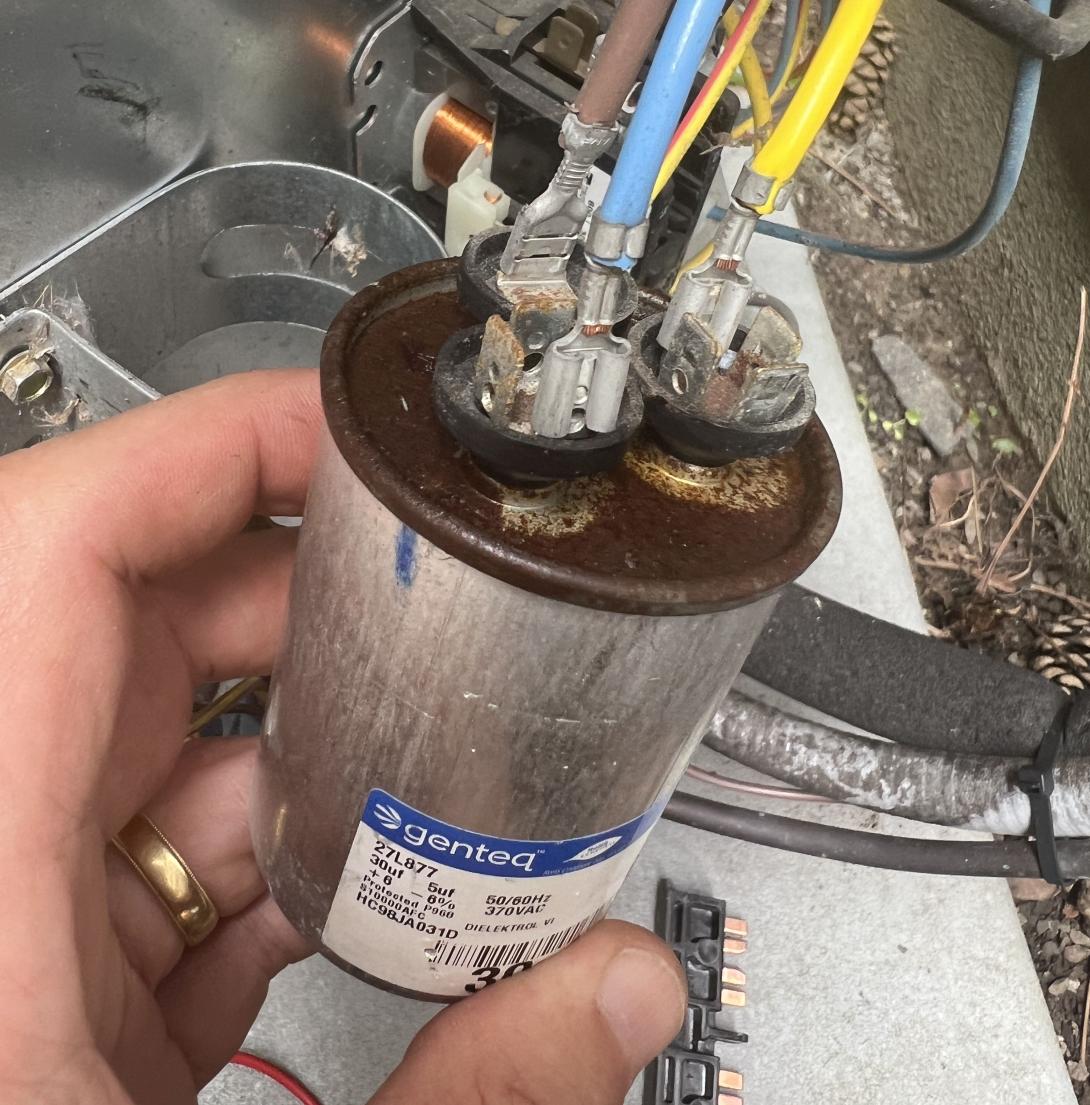Ottawa has weird weather. Despite being at merely 45.4215°N latitude, it has the dubious distinction of being the 7th coldest capital in the world.
Having said that, its summers can be quite hot and humid. In fact, there are usually a few days in the summer when temperatures in Ottawa are higher that those in Miami Florida. We usually have a couple of weeks with temperatures over 30°C, and on average, my AC will be called into service for roughly four to five weeks (cumulative) per year.
I had my 1.5T air-conditioning system installed back in 2010, so it is now middle-aged, somewhat below its expected 15-20 year life span. Earlier this summer, being an engineer and believing in maintaining things as a general concept, I decided that maybe a check-up of my AC system by a HVAC professional would be in order.
HVAC professional person #1 shows up, does his standard battery of tests, and informs me that my system is ‘failing.’ Specific comments included “system lost its charge, the capacitor is also failing” (capacitance down 10% on the fan capacitor, cap rated at ±6%), and “the fan motor is drawing over spec” (0.7A, spec’d at 0.5A, so 40% over spec). He estimated repair costs of up to $3k (in Canadian dollars -CAD). This includes replacing the fan motor, finding a potential leak in the system by injecting a dye into the refrigerant lines —no guarantees there he said—, and replacing the capacitor. He actually recommended replacing the whole thing. I did not quite like the sound of that and throw-away society.
HVAC professional person #2 opined that finding a leak would be hard —if not impossible—, assuming there was a leak in the first place. He did not have any big concerns about either the fan motor drawing more current , nor it’s ‘run’ capacitor being out of spec. He recommended running the system until it died, which could be years away given my system’s low yearly run time.
Luckily, HVAC person #1 provided some actual metrics, including pressure and temperature of both liquid and suction lines, and measurements for subcooling , superheat, evaporator T, ΔT, and ambient conditions both inside the house and outside. That got me surfing the web for a few days, mostly watching YouTube videos, to learn about these HVAC terms and make sense of these metrics, and to figure-out which one could conceivably be out of whack. I concluded that the metric of concern was probably ‘subcooling,’ at a low value of 1°F; this I gather should be closer to 8°F based on info from the back of the service cover for my unit.
HVAC professional person #3 enters the picture. I provided him with all the details that I had, and he opined that there was nothing wrong with my system. It was cooling my house just fine after all. He did not even recommend adding more refrigerant to the lines. “These are sealed systems” he said, and “they don’t leak.”
I ended-up replacing the capacitor myself, just to be on the safe side, mostly because it was easy to do. I got it from Amazon for $26.78 CAD, including shipping and taxes.
Hopefully my AC will last for a few more years.
